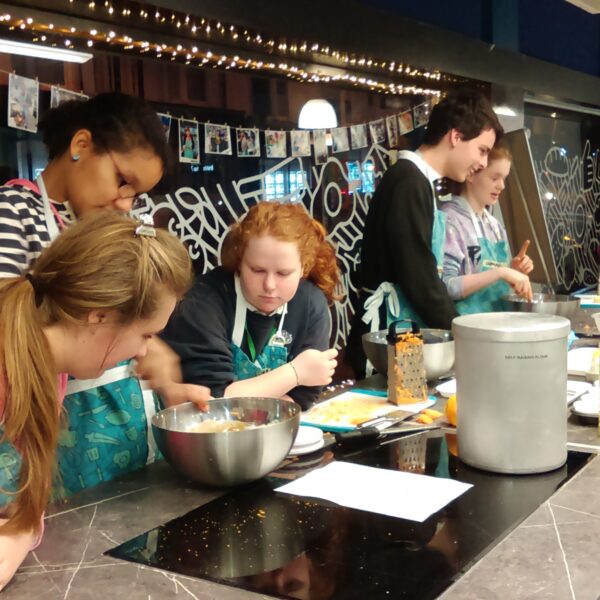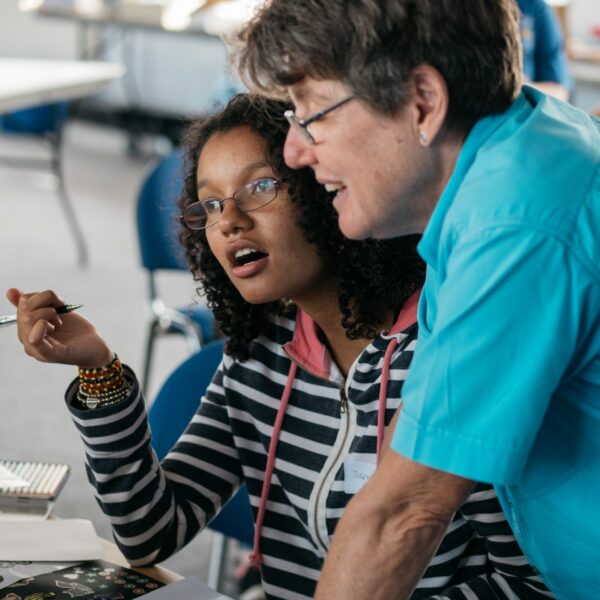Further education and training for young people with SEND
After secondary school, there are lots of options available to young people with additional needs.
What are the options?
Options after secondary school include:
- further education and training
- work and learning combinations
- supported volunteering and employment opportunities
On this page, we will look at education, training and work and learning combinations: if your young person is ready to start thinking about careers or volunteering, please see our work and volunteering page.
Further and higher education
After they finish secondary school, your young person might choose to study full-time.
Schools, colleges, and training providers offer a range of subjects and courses, from subject-based qualifications such as A levels or work-to-job related courses such as NVQs and BTECS. If your young person does not have GCSE Grade 4 Maths and English, they may need to keep studying these subjects, and some colleges will offer this alongside another course.
What is full time?
Types of courses
Courses are at different ‘levels’ and your young person can start at the level which is best for them. When they finish the course, they might move onto the next level in the same subject or change to a different subject. Below, we explain what each level is:
- Entry level courses can be a good start for young people who have not studied for GCSEs at school
- Level 1 courses give you a good foundation in the subject you choose
- Level 2 courses are GCSEs and job-related courses like NVQs, BTECs and diplomas that involve learning to the same level as you would for a GCSE
- Level 3 courses are A Levels and job-related courses like NVQs, BTECs and diplomas that involve learning to the same level as you would for an A Level
- There are also courses at higher levels, for example a foundation degree at university is a Level 4 or 5 course
See a list of sixths forms and colleges in Brighton and Hove offering study and job-based courses:
Sixth forms, colleges and universities in or near Brighton & Hove (brighton-hove.gov.uk)
And in East Sussex:
careerseastsussex.co.uk/courses/full-time-courses
There are also colleges that offer more creative subjects at post 16 level such as:
- Supajam – a SEND specialist Music college Brighton Base | Specialist Music College | SupaJam Education (semmuk.com)
- Dv8 – who offer a range of creative courses Dv8 Sussex: Creative College and Education in Brighton and Bexhill
Get advice about Education options
Advice from Amaze
Young people aged 16-25 with SEND in Brighton & Hove can make get support from our Amazing Futures Careers service. They can meet with Dara, our Careers service coordinator, at the Youth Employment Hub (brighton-hove.gov.uk) where many services that can support young people are based.
Young people in East Sussex can also get careers support if they already attend our Amazing Futures groups.

Other careers advice
You people can do a test from the National Careers Service, which may help them to discover their skills: Home | Discover your skills and careers | National Careers Service
Get Career Confident is a Sussex Learning Network website designed to inspire and educate young people about education, training and employment options.
Or your young person can usually get some advice from their school or college about next steps. If they have an Education, Health and Care Plan, their annual review should be focusing on future options including education from Year 9 onwards.
Work and learning combined
Your young person may want to do something more practical that leads to a qualification when they finish secondary school: this is where combinations of work and learning can be a good idea.
Most combinations of work and learning allow young people to focus on developing the practical element with some learning that complements this. See below for more information on different work and learning combinations.
Apprenticeships
Apprenticeships are for over 16s and combine practical training in a job with study, for example a work placement in a Care Home combined with a Health and Social Care Level 3.
Apprenticeships are paid, making them a great option for someone that wants to ‘earn whilst they learn’ and, although all apprenticeships are a little different, more of the learning and training happens on the job than in college. They can last between one and five years depending on the level: they go from Level 2 (GCSE equivalent) to Level 6/7 (degree equivalent).
You can find out more here: Apprenticeships | National Careers Service
T levels are a new type of qualification for 16-19 year olds that focuses on one specific subject: they are worth the equivalent of three A levels. Young people doing T levels will spend around 80 percent of their learning time in college and the other 20 percent in a work placement. There are several subjects available now in England and more subjects are coming in the next few years as T levels become more widely available. You can find out more here: T Levels | National Careers ServiceT levels
Traineeships (and central government funding changes)
If your young person wants to do a job or an apprenticeship but they need more experience, they might be able to consider a traineeship depending on how available these are in your area.
As of August 2023, central government has withdrawn their funding for traineeships and although they ‘can continue to be offered by providers locally’, they are going to be less available without this crucial core funding.
A traineeship offers training to help your young person aged 16-24 (or 25 with an EHCP) get ready for work, including support to improve Maths and English skills. It also includes work experience.
You can find out more here: Traineeships | National Careers Service
If your young person is more interested in working and doesn’t want to do studying, then check out our work and volunteering page.





